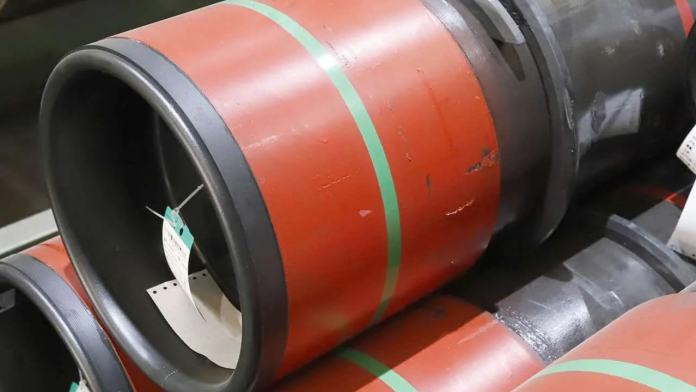API 5CT casing and tubing pipes are essential in the oil and gas sector, acting as fundamental components of well construction and production operations. Casing pipes line the drilled borehole and offer structural support, avoiding collapse and allowing hydrocarbon extraction to proceed more smoothly. Tubing pipes, on the other hand, are put into the casing to transport fluids like oil, gas, and water from the reservoir to the surface.
These pipes are subjected to harsh conditions such as high pressures, corrosive environments, and fluctuating temperatures, making quality and dependability critical. To ensure casing and tubing pipes’ integrity and performance in challenging downhole environments, api 5ct sets strict standards for their manufacture, inspection, testing, and certification. API 5CT accreditation is a symbol of quality and reliability, building trust in operators, manufacturers, and regulatory bodies.
Role of API 5CT Casing and Tubing Pipes in the Oil and Gas Industry
The oil and gas business is a critical component of global energy supply, providing electricity to economies and industries all over the world. API 5CT casing and tubing pipes serve an important role in assuring the efficiency, safety, and long-term viability of oil and gas extraction operations. This article discusses the significance of API 5CT pipes, including their functions, standards, and industry relevance.
Ensuring Well Integrity and Stability
API 5CT casing pipes are primarily used to ensure well integrity and stability. During drilling operations, the formation pressure produced by the surrounding rock layers increases the danger of well collapse significantly. Casing pipes are designed to handle high pressures while maintaining wellbore integrity and preventing formation damage. Casing pipes establish a barrier between the wellbore and the external environment, protecting against fluid migration and any environmental risks.
Facilitating Fluid Transport and Production
API 5CT tubing pipes convey fluids such as oil, natural gas, and production fluids from reservoirs to surface facilities. These pipes are put into the casing string and outfitted with various components, such as pumps, valves, and production equipment, to aid in fluid extraction and production activities. To withstand the extreme circumstances experienced during production, tubing pipes must be strong, corrosion-resistant, and capable of bearing pressure.
Compliance with Stringent Standards
API 5CT specifies severe manufacturing, testing, and inspection standards for casing and tubing pipes. These standards ensure that pipes satisfy strict quality requirements and follow industry best practices. API certification requires manufacturers to meet API specifications, which include material composition, mechanical qualities, dimensions, and performance parameters. Compliance with API 5CT standards is critical for the dependability, safety, and performance of casing and tubing pipes in oil and gas applications.
Enhancing Safety and Reliability
The use of API 5CT casing and tubing pipelines improves safety and dependability in oil and gas operations. These pipes reduce the danger of equipment failure, leaks, and accidents by following standardized requirements and quality control procedures. API-certified pipes are subjected to rigorous testing, including hydrostatic, non-destructive, and visual inspections, to ensure their integrity and performance. This stringent testing method assures that only high-quality pipes meeting industry requirements are used in crucial well construction and production activities.
Optimizing Production Efficiency
API 5CT casing and tubing pipes are critical to increasing production efficiency in oil and gas fields. Casing pipes allow for effective reservoir access and zonal separation, resulting in selected production from several formations inside a single wellbore. Tubing pipelines allow for the efficient extraction of hydrocarbons from the reservoir to the surface. By using high-quality API-certified pipes, operators may improve production performance and optimize resource utilization in oil and gas reservoirs.
Supporting Sustainable Operations
API 5CT pipes promote sustainable oil and gas operations by decreasing environmental impact and carbon footprints in an era of rising environmental consciousness and regulatory scrutiny. Casing pipes reduce the danger of groundwater pollution and surface spills by ensuring well integrity and preventing fluid leaks. Furthermore, using corrosion-resistant tubing pipes increases the service life of wells, eliminating the need for frequent interventions and minimizing environmental disruption.
Final Words
API 5CT casing and tubing pipes are key components in the oil and gas sector, ensuring the integrity, safety, and efficiency of well construction and production. These pipes are critical for wellbore stability, fluid conveyance, and production optimization, all while meeting demanding quality and regulatory criteria. By using high-quality API-certified pipes, operators can improve operational performance, reduce risks, and promote long-term resource development in the oil and gas sector.







